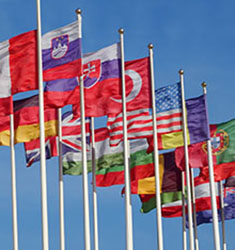Program Description
Conflict exists both within ourselves and in our interpersonal relations: with friends, families, or our community, locally and globally. If you want to be able to recognize and peacefully resolve conflict, consider the Peace & Conflict Studies program at the University of Utah. Offered collaboratively by the College of Humanities, Department of Communication, and College of Social and Behavioral Science, Peace & Conflict Studies will give you the knowledge, skills, and values you need to be a peacemaker in the world. Students in this program choose one of three themes for their studies: Conflict Resolution, Social Justice, or Global Perspectives. Regardless of emphasis area, students take courses in topics like negotiation, poverty and inequality, international affairs and human rights, world religions and politics, and the economics of race and gender. The culminating experiences of the program include a capstone course, seminar, and required internship. Through your studies, you will develop your communication, social awareness, and critical thinking skills, enabling you to pursue careers in a number of fields.
The Student Experience
For assistance in your studies, visit the Peace Library and use its books, films, and other academic resources as you complete your assignments. Students can also get involved by joining the Peace and Conflict Club or participating in one of the outreach programs offered by the Barbara & Norman Tanner Center for Nonviolent Human Rights. Another great involvement opportunity is the Radical Middle Program, a radio show that promotes understanding and non-violent cooperation when dealing with conflict in the family or community. The show will expose you to viewpoints other than your own, diversifying your studies, and you can even serve as a guest speaker on the program.
Career Opportunities
Graduates of the program are prepared to pursue careers as victim advocates, journalists, public relations representatives, and HR and conflict resolution specialists. Work for a company or the government, or be self-employed and act as a consultant for groups and individuals in need of conflict resolution. With additional education at the graduate level, you can find work as a counselor, mediator, advisor, lawyer, human rights advocate, or professor.

 Peace & Conflict Studies
Peace & Conflict Studies


